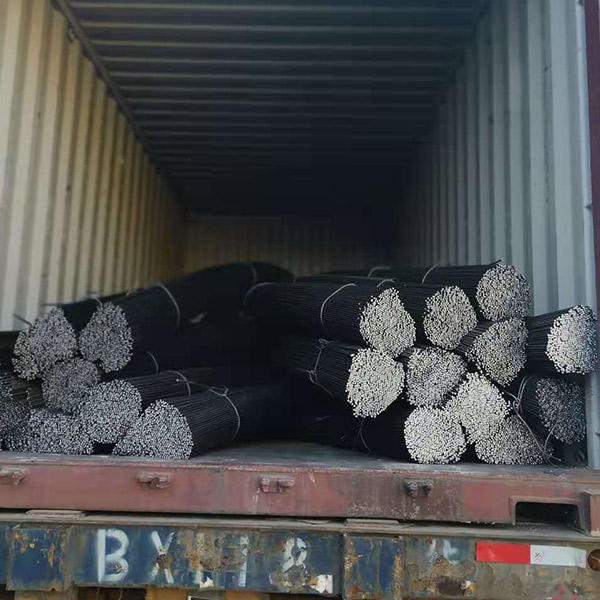Sep . 01, 2024 22:28 Back to list
Cold Rolled Rebar - Durable and High-Strength Steel Reinforcement
Cold rolled rebar, also known as cold-worked steel reinforcement bars, is a specific type of reinforcing bar that is manufactured using a cold rolling process. This method involves processing steel at room temperature, which enhances certain mechanical properties of the material. Unlike conventional hot-rolled rebar, which is produced by heating and shaping, cold rolled rebar undergoes deformation without the use of heat, resulting in increased yield strength and tensile strength.
The primary advantage of cold rolled rebar lies in its enhanced mechanical properties. The cold working process introduces strain hardening, which effectively increases the strength of the steel. This makes cold rolled rebar an excellent choice for construction projects where high structural integrity is critical. The improved strength characteristics allow for the use of smaller diameter bars in certain applications, which can lead to a reduction in overall material usage and associated costs.
Cold rolled rebar is particularly favored in applications where superior bonding with concrete is necessary
. The surface of cold rolled rebar is typically rougher compared to hot rolled rebar, which enhances adherence when embedded in concrete. This improved bond strength is crucial for the overall stability and durability of structures, particularly in regions subject to seismic activity.cold rolled rebar

Moreover, cold rolled rebar exhibits better resistance to fatigue and cracking, making it suitable for high-stress environments. Its performance under dynamic loads is superior to that of its hot-rolled counterparts, thus being a preferred material in the construction of bridges, high-rise buildings, and infrastructure that experience heavy loads and vibrations.
Environmental concerns have also driven the interest in cold rolled rebar. The production process generally has a lower carbon footprint than hot rolling processes due to reduced energy consumption. As the construction industry increasingly prioritizes sustainable practices, cold rolled rebar presents an attractive option for environmentally-conscious builders.
In conclusion, cold rolled rebar represents a significant advancement in construction materials. Its superior mechanical properties, enhanced bonding capabilities, and sustainable production process make it an ideal choice for demanding applications in the construction industry. As modern engineering continues to evolve, the role of cold rolled rebar is likely to grow, contributing to safer and more resilient structures worldwide.
-
High-Quality Steel Grating Solutions for Industrial Applications | Durable, Safety, Customization
NewsJul.13,2025
-
Advanced Solutions-CompanyX|Enterprise Efficiency&Cost Reduction
NewsJul.13,2025
-
Sustainable Manufacturing-EcoTech Innovations|Waste-to-Energy System&Zero Emissions
NewsJul.13,2025
-
Welded Wire Mesh- Buildings Wiremesh Co., Ltd.|Durable Construction Material&Industrial Strength Solution
NewsJul.13,2025
-
Smart Production Solutions-Example Corp|AI Automation&IoT Monitoring
NewsJul.13,2025
-
Advanced Industrial Solutions-Advanced Industrial Solutions|Manufacturing Efficiency&Productivity
NewsJul.13,2025

